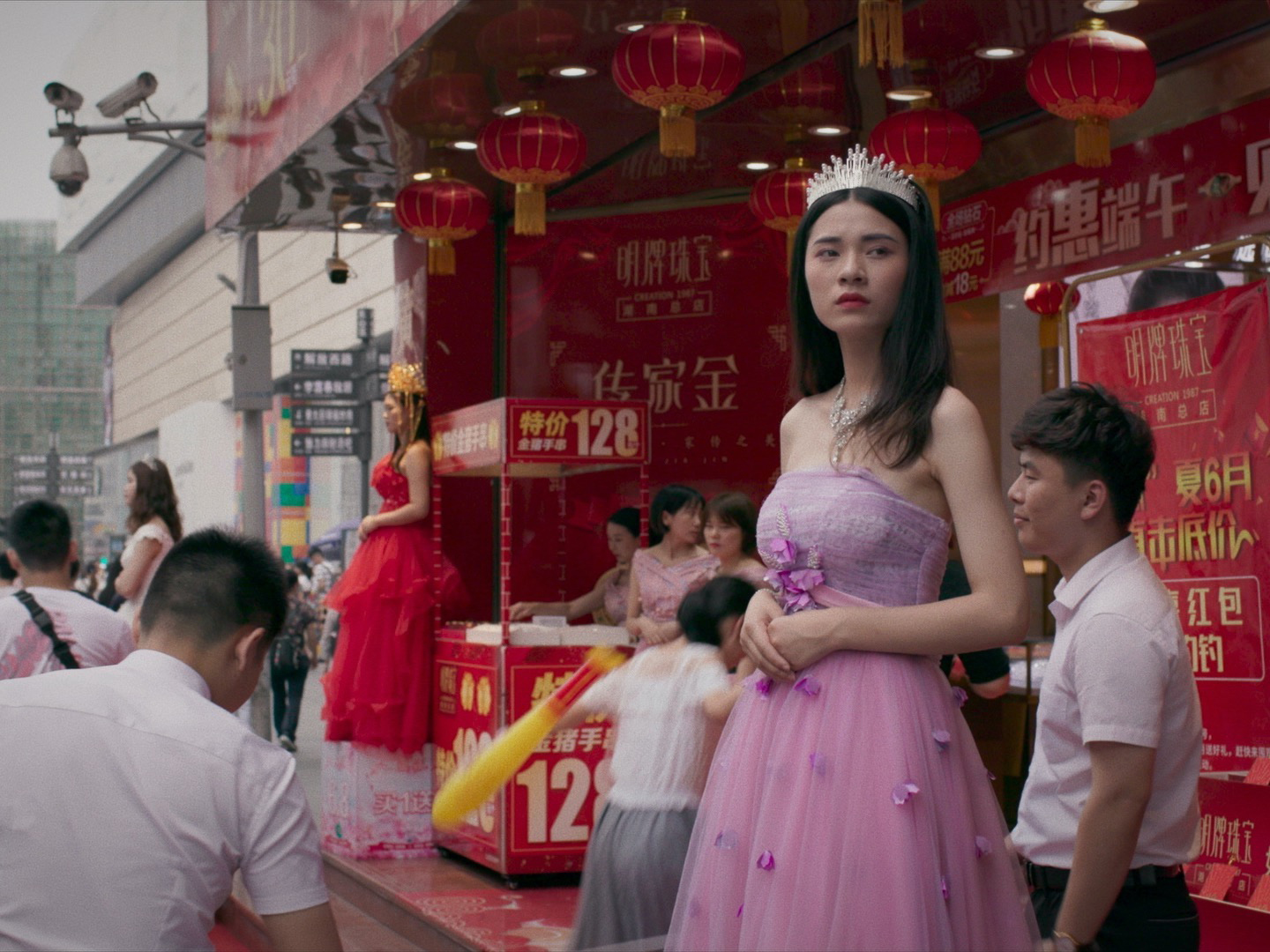
For more than a decade, Beijing-based wife-and-husband team Huang Ji and Ryûji Otsuka have been making films about the lives of young people in China – in many cases “left-behind children,” or those whose parents are forced to leave their families to find jobs in cities. Expanding their project, their gripping, humane yet uncompromising latest, shot with a precise formal economy by Otsuka (who also serves as cinematographer), focuses on a year in the life of Lynn (incarnated by the filmmakers’ quietly potent recurring star Yao Honggui), a flight-attendant-in-training whose plans to finish college are thrown into doubt when she discovers she’s pregnant. Not wanting an abortion (a decision she hides from her callow, absent boyfriend, away on modeling and party hosting gigs), she hopes to give the child away after carrying it to term, while staying afloat amidst a series of dead-end jobs.
EN
“When our daughter was five years old, she often asked us a question: “Mommy and Daddy, why did you give birth to me?” This question reminded me (Huang Ji) of my own mother and my childhood. My mother was an obstetrician and often took me to the operation room to see child deliveries or abortions. Ever since China’s “One Child Policy” was changed to “Two-Children Policy”, Chinese women now have more choice regarding motherhood. However, the number of abortions have not declined. Why haven’t women decided to keep their babies? Have they become more numb to pregnancy than before? We wrote the story about a young woman’s pregnancy and spent ten months filming. We wanted to explore this numbness while making the film. At the same time, we were also slowly conceiving my daughter’s future. “Mommy and Daddy, why did you give birth to me?” She will find the answer to her question in Stonewalling.”
Huang Ji and Ryûji Otsuka
How do you work together? Who does what?
Ryûji Otsuka: Step 1: After the night has become quiet and dark, we lie in bed and Huang Ji tells me her observations and discoveries she has collected from her everyday life. And I take these elements and look for perspectives and begin to build a story.
Step 2: We begin to do research into the topic and interview those who live those lives. In the majority of interviews, we empathize with the vitality of the people and build their experiences into the film, and invite them to act in the film.
Step 3: On the set itself, Huang Ji takes care of the actors and their delivery, and I am responsible for the mise-en-scene. Afterwards, we review the material we’ve shot and restructure the story from there.
Stonewalling is the third part of a series made up ofand Foolish Bird, which all deal with sexual awakening, girlhood / young woman-hood and independence. All of them feature Yao Hong gui who rarely works in film outside your films. Can you talk about your relationship with her, and how has that evolved as she herself has become an adult? How did you first meet?
Huang Ji: When we shot Egg and Stone I scouted all the schools in my hometown before I found her. Her parents were economic migrants who had left her in their hometown (commonly referred to as “left-behind” children).
I could tell by her body language and the look in her eyes that she had locked herself up in her inner-world. We decided to shoot according to her rhythm. We observed her in everyday life; as she began to understand womanhood and experience her sexual awakening; her encounters with others and society. From her lived experience, we built a series of films focusing on female sensuality, identity and independence.
You mentioned in a previous conversation that it was important to you that the character of Lynn is not very bright, an average girl. Why was that a point to note?
In media, women are often portrayed as in-control and aware of what they are doing. Smart, conniving... But I think women do not have an innate ability from day one to absorb, analyze and act on what their bodies go through. Women need the physical lived experiences of their bodies to grow their understanding of themselves. I wanted to show Lynn as a very average girl facing a difficult situation. And in that difficult situation, which is largely out of her control and unplanned, we watch her face her predicament equipped only with her do-it- yourself instinct and hard work. This is female power.1
- 1“ Interview with the Directors,” EPK.

